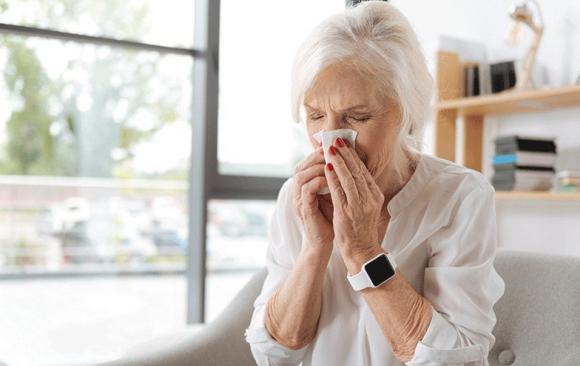According to the Centers for Disease Control and Prevention (CDC), older people and people with underlying health conditions are about twice as likely to “develop serious outcomes” from the COVID-19 coronavirus—get really sick and possibly die—as younger and otherwise healthier people.
One reason is that older immune systems are less able to fight off infections. Lungs also deteriorate, becoming less elastic and resilient over time, and like the seasonal flu, COVID-19 is a respiratory virus. And olders are more likely to have underlying conditions—such as heart disease, lung disease and diabetes—that make us more vulnerable to other illnesses and slower to recover.
This doesn’t mean that the day someone turns 65, they’re at higher risk. It also says very little about what any given individual is up against when it comes to getting sick or getting better. Underlying health plays a much bigger role than age does. And while older people do have more health issues, plenty are in excellent health, and plenty of young people are immune-suppressed and/or live with chronic disease.
Being old doesn’t make you more likely to spread the virus either, any more than being ethnically Asian does. Yet some people have been avoiding contact with people who “look a bit Chinese.” Hello, racism!
Where does ageism enter in? In suggestions, mostly on social media, that since “only old people” have been dying from this coronavirus in significant numbers, the rest of the world needn’t be too worried about it. Even worse, in suggestions of setting an age limit for medical treatment, so it won’t be “wasted” on people less likely to survive. A public health emergency can indeed make it necessary to allocate resources by health status. That’s triage. Allocating resources by age, under any circumstances, is not triage. It is ageism at its most lethal.
In some quarters, the AIDS epidemic was considered divine retribution for sinful behavior. Shamefully, many of those most at risk, already marginalized by homophobia and racism, were overlooked and even left to die. Doing the same to those marginalized by ageism—the corrosive belief, at its ugly heart, that to age is to lose value as a human being—is just as reprehensible. It is not ethical, or legal, to allocate resources by race, gender, or sexual orientation. Doing so by age is equally unacceptable. Period.
No one deserves to be sick. Everyone deserves respect and care. Viruses infect everyone. Humans shouldn’t discriminate either. The way we respond to a challenge, especially a fearsome one, shows who we truly are, as individuals and societies.
There’s nothing like a global pandemic to prove that we’re all in this together. Let’s act like it, in solidarity across age, race and borders.
March 17th postscript: Since writing this post, I’ve come to understand that when hospitals get completely overwhelmed, as has happened in Italy and is likely in the US very soon, people on the front lines have to make hideous decisions, very fast, about which of the many patients in dire condition are likely to benefit most from getting, say, the only available ventilator. Their job is to save as many lives as possible.
Age is way quicker to assess than health status, and advanced age is a clear disadvantage under these circumstances. Boom. Such decisions are tragic, horrible, wrong and—under these conditions—necessary. I sure don’t envy the people making them.
If we didn’t have a government controlled by corporate interests like Big Pharma and insurance companies, and it had invested in decent health care for all, supported public hospitals, not fired the scientists trained to deal with outbreaks, gave a damn about the most vulnerable (not just olders but people with disabilities and/or substance abuse problems and/or who are homeless and/or incarcerated) and not ignored the coronavirus threat for months, far fewer people would now be at risk. Capitalism kills.
March 22 postscript: [Here are] a fascinating and nuanced New York Times article about the ethics of medical rationing and a terrific GeriPal podcast in which two doctors break this down in the light of the current crisis.



